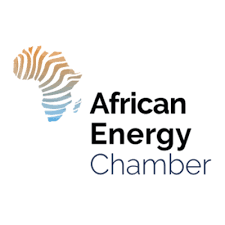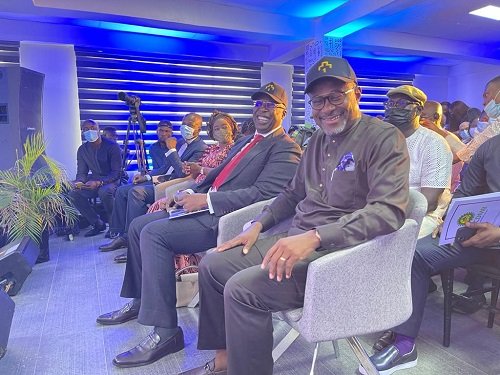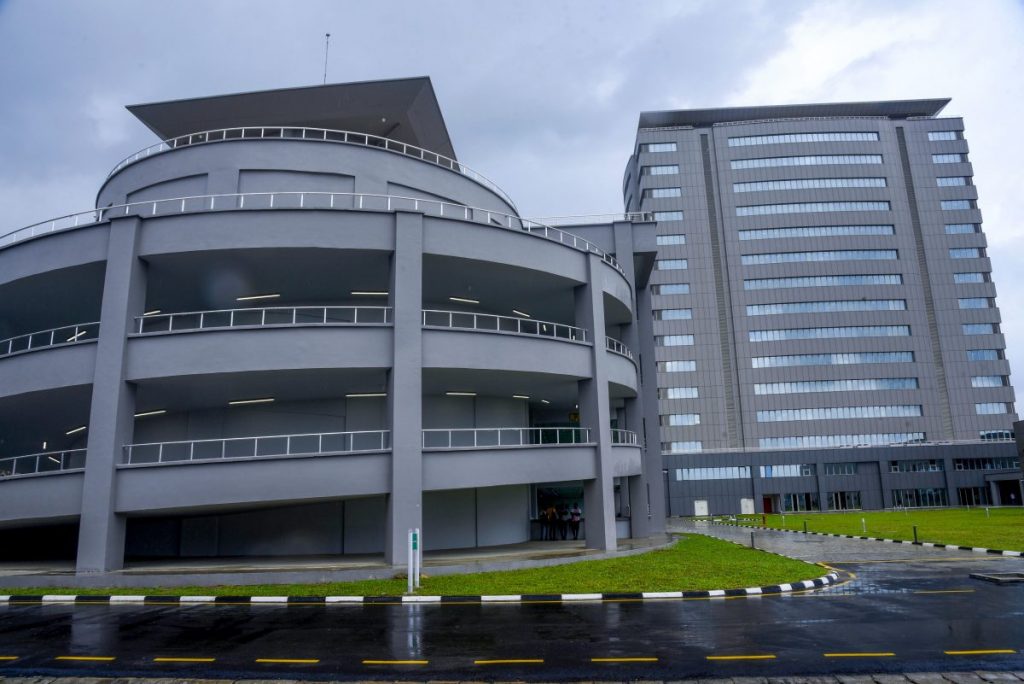1 November 2011, Sweetcrude, Port Harcourt – The first point to note about the downstream sector of the oil and gas industry is that it is heavily deregulated and just lightly regulated. Over the years the NNPC got wise to the fact that it could not refine, warehouse, wholesale and retail petroleum products all by itself. The deregulation by legislation of the downstream sector produced new generation operators such as Addax Oil, Oando Plc, Capital Oil, Masters Energy, Zenon, Sahara Oil, etc, all multi-million dollar concerns. The Nigerian government and her sympathisers would have us believe that the regulation ONLY of the pump prices of Premium Motor Spirit, referred to on the streets as ‘petrol’ and Kerosene is bringing down the Nigerian economy. This argument is as mathematically inaccurate as it is fraudulent. The pump prices of diesel and LPG are deregulated and we have neither seen nor enjoyed the benefits of their deregulation.
What the Nigerian government seeks to achieve is not deregulation but the removal of the ugly tic in the industry that is petroleum price subsidies by the insensate surgical means of immediate legislation instead of a gradual phasing process that would take into account the all important factor of the purchasing power of the consumer. Petrol and kerosene are currently pegged by government at N65.00 and N50.00 per litre; according to an International Monetary Fund Staff Position Note published on February 25, 2010 that advances the reduction of subsidies, “a price subsidy is the difference between the price facing consumers and a specified “optimal” benchmark price.”
The optimal benchmark price is of course different from the marginal supply cost which is computed from the bare cost of production and handling. The specified optimal benchmark cost is computed from production, handling, plus nice imponderables such as natural disasters, speculative buying, wars, reduced production by a competitor, etc. Don’t be fooled, all the rumpus over deregulation in Nigeria is not about the inability of the operators in the downstream sector to access the specified optimal benchmark prices of petrol and kerosene because they do thanks to the nice facility called subsidy differential which gets paid to them through the facilitation of the Petroleum Products Pricing and Regulation Agency, the trustee and administrator of Nigeria’s Petroleum Support [Stabilisation] Fund. Thanks to this price balancing mechanism Nigerian companies make as much profits as their counterparts in other climes. The snag and the reason for all the furore over deregulation is that government feels unduly burdened by the cost of the subsidy, something it claims amounted to about N1.3trillion in the last fiscal year.
The government argues that this sum which accounted for about 30% of its budget could have been put into some other productive ventures like education, road construction, the refurbishment of the refineries, etc. Pray, what did government do with the monies it did not defray as subsidy payment before the coming into being of this regime of subsidy payments? Nigerians stood by and watched members of the National Assembly who constitute less than 0.5% of the country’s population appropriate 25% of our national budget to cater for their welfare and all hell is about being let loose because 80% of the people will continue to enjoy the relatively stable pricing of two very basic and yes, already very expensive products. The IMF, that meddling predator and the motley of confused local economists have argued on the side of government that subsidies have slowed our economic growth, specifically the rapid development of the downstream sector. They argue that though Nigerian authorities have approved about 18 licences to private companies to establish and operate refineries, none has commenced because of the subsidy regime; the idea is that with the removal of subsidies, private investors would have the incentive to commence private refinery operations, employing young school leavers, creating sub-sector investments, promote further diversification of the sector for the overall benefit of the Nigerian economy.
First of all, oil subsidies are not a Nigerian peculiarity; if anything we came late into the game we are trying to exit before getting a proper hang of it. According to the IMF Staff Position Note quoted earlier in this piece, “G-2O countries account for 70% of tax inclusive [oil] subsidies.” In April 2002, India, a country that sources 75% of its crude requirements externally, abolished its Administered Price Mechanism and its Oil Pool Fund, the counterparts of our PPPRA and the PSF. India has since reversed the policy and provides heavy oil subsidies for its citizens, the same as China, Mexico and Indonesia. The United States provides heavy oil subsidies to its citizens by giving tax breaks to every level of oil production. It is elementary economics that a tax that is below its optimal level generates tax subsidies. Russia, Trinidad and Tobago, Venezuela and many other countries subsidise oil. The Canadian government paid between $3b and $8b to the forest industry in 2000, $6b to mining, $700m to fishing and $2b to the nuclear industry, among many other subsidy payments. It was only in 2004 that Libya removed about $5b of subsidies from electricity, fuel and basic food, leaving more than three times that amount on the same items. Qatar subsidises nearly the whole existence of her citizens including local telephone calls made via private GSM carriers like Etisalat!
Nigeria subsidises nothing except the pump prices of kerosene and petrol; having mismanaged this facility through corruption and cronyism, we seek the first point of exit in the face of our first set of challenges and it is on record that the government has extended direct subsidy payments to private operators for only two years through the PPPRA. Instead of investigating the abuse that brought the situation to such a desperate level, we seek to abandon this first attempt at reducing the suffering of our people, forgetting that about 80% of our population live on less than $2 per day.
Let me also opine with the boldness that the statistics accord me that the removal of oil subsidies in Nigeria would not add a single refinery to the Nigerian industry and economy. Anybody who invests in a refinery, a long term project, in the present energy situation would truly require a psychiatric evaluation because with the current pace of research efforts in the industry, that party may be left with a facility that refines nothing. And it is simply not true that banks will not invest in a business that is dependent on government subsidy payments. After all, banks are financing the importation of products for the promise of subsidy payments because of short terms returns. Subsidies are paid for products not for the manner in which the products hit the market.
The Nigerian government should be equally hysterical about the beautiful volumes of sales recorded as excess crude sales. Should we not know what tiny percentage of the upstream earnings account for the subsidy payments? If Nigerians enjoyed a government shelter of N1.3trillion over petrol and kerosene usage what did the country make in the sale of crude in the last fiscal year or in the taxation of LPG, diesel, bitumen, high and low pour fuels, lubricants, etc? Instead of undermining our economy, subsidies have defined the potential of the downstream sector, stabilised supply and promoted credit security in the sector. And government acts as though the money paid to marketing companies and importers as subsidy differential is lost to the economy. Were the monies dumped in the Atlantic or in a real serviceable sector of the economy? Wouldn’t some of that money go back to government as tax? Haven’t the banks been boosted with deposits, commissions, interest payments, foreign exchange earnings and new jobs by virtue of the injection of these funds into the economy? What is the level of the sale of the subsidised products compared to the former situation? We forget too quickly that government, the economy, political activities and power is about the welfare and security of the people.
One is very mindful that in canvassing the opinions articulated in this piece, one may have unwittingly given support to the rabble in PENGASSAN, NUPENG and the other trade unions that enter into any and every fray for vocational reasons. I would like to dissociate myself from that crowd; I have found over the years that within these unions are the most unpatriotic set of Nigerians who care nothing about driving us off a cliff in so far as their allowances and salaries are in issue. They would not accept pay cuts or sacrifice their luxuries for corporate survival. They are like the unions that gave corporate America the need for and lexicon of outsourcing, turning round to envy the Asians their good fortune in inheriting American manufacturing lines. They use the masses both as weapon and as shield, as it suits their needs. Our views may have found a point of convergence on this issue but they are no friends of mine or of the Nigerians whose interest they pretend to serve.




